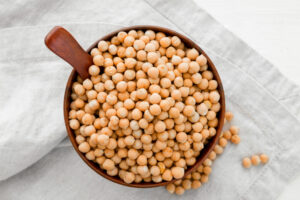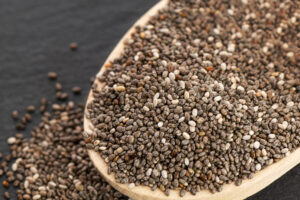Trending
Introduction
Black beans, also known as turtle beans, are a popular legume celebrated for their rich flavor, versatility, and impressive nutritional profile. Originating from Latin America, black beans have become a staple in various cuisines worldwide

Nutritional Value of Black Beans
Black beans are a nutritional powerhouse, offering a rich supply of macronutrients and micronutrients. A one-cup serving of cooked black beans (about 172 grams) contains approximately:
- Calories: 227
- Protein: 15 grams
- Carbohydrates: 41 grams
- Fiber: 15 grams
- Fat: 1 gram
In addition to these macronutrients, black beans are packed with essential vitamins and minerals such as folate, iron, magnesium, phosphorus, and potassium.
Protein Content in Black Beans
Black beans are an excellent source of plant-based protein, providing about 15 grams per cooked cup. This makes them a valuable protein source for vegetarians, vegans, and anyone looking to reduce their meat consumption. The protein in black beans contains all nine essential amino acids, making them a complete protein source when combined with grains like rice or quinoa.
Health Benefits of Black Beans
Black Beans and Heart Health
Black beans are beneficial for cardiovascular health due to their high fiber, potassium, folate, vitamin B6, and phytonutrient content. These nutrients help lower cholesterol levels, reduce blood pressure, and decrease the risk of heart disease. The fiber in black beans also helps reduce the total amount of cholesterol in the blood and decreases the risk of heart disease.
Digestive Benefits of Black Beans
The high fiber content in black beans promotes healthy digestion and prevents constipation. Both soluble and insoluble fibers are present, which help maintain a healthy digestive tract. Soluble fiber forms a gel-like substance in the gut that can help slow down digestion, while insoluble fiber adds bulk to the stool and helps it pass more quickly through the digestive system.
Black Beans for Weight Management
Black beans are an excellent food for weight management because they are high in protein and fiber, both of which promote feelings of fullness and satiety. This can help reduce overall calorie intake and support weight loss efforts. Additionally, black beans are low in fat and calories, making them a nutritious addition to a weight-loss diet.
Black Beans and Blood Sugar Control
Black beans have a low glycemic index, which means they cause a slower rise in blood sugar levels compared to other carbohydrate-rich foods. This makes them a good option for people with diabetes or those looking to manage their blood sugar levels. The fiber and protein in black beans also help stabilize blood sugar levels by slowing the absorption of sugar into the bloodstream.
nutrients in Black Beans
Black beans are rich in essential vitamins and minerals, including:
- Folate: Important for DNA synthesis and repair.
- Iron: Crucial for oxygen transport in the blood.
- Magnesium: Vital for muscle and nerve function, blood glucose control, and energy production.
- Phosphorus: Essential for the formation of bones and teeth.
- Potassium: Helps maintain normal blood pressure and supports muscle and nerve function.
Antioxidant Properties of Black Beans
Black beans are a good source of antioxidants, which help protect the body from oxidative stress and reduce inflammation. Antioxidants like flavonoids, including quercetin and saponins, have been shown to have anti-inflammatory and anti-cancer properties. These compounds can help reduce the risk of chronic diseases such as heart disease and cancer.
Side Effects of Black Beans
While black beans are highly nutritious, they can cause some side effects, particularly if consumed in large quantities. Common issues include gas and bloating due to the high fiber content. Black beans also contain antinutrients such as phytic acid, which can interfere with the absorption of certain minerals.
How to Minimize Side Effects
To minimize potential side effects, it is recommended to soak black beans before cooking. Soaking helps reduce the antinutrient content and can make the beans easier to digest. Additionally, cooking black beans thoroughly can help reduce gas and bloating. Starting with small portions and gradually increasing intake can also help the digestive system adjust to the higher fiber content. Black Beans into Your Diet
Black beans are incredibly versatile and can be used in a variety of dishes. Here are some ideas for incorporating them into your diet:
- Soups and Stews: Add black beans to soups and stews for added protein and fiber.
- Salads: Toss black beans into salads for a hearty and nutritious addition.
- Side Dishes: Serve black beans as a side dish, seasoned with herbs and spices.
- Burritos and Tacos: Use black beans as a filling for burritos and tacos.
- Black Bean Burgers: Make homemade black bean burgers as a healthy meat alternative.
Black Bean Recipes from Around the World
Black beans are used in many traditional dishes from different cultures. Some popular recipes include:
- Black Bean Soup: A hearty and warming meal, perfect for cold weather.
- Cuban Black Beans and Rice: A classic dish that pairs black beans with rice and spices.
- Black Bean Enchiladas: A flavorful and satisfying Mexican dish.
- Brazilian Feijoada: A traditional Brazilian stew made with black beans and various meats.
FAQs
What are the health benefits of black beans?
Black beans offer numerous health benefits, including improved heart health, better digestion, weight management, and blood sugar control. They are also rich in essential vitamins and minerals.
How much protein do black beans contain?
A cup of cooked black beans contains about 15 grams of protein, making them an excellent source of plant-based protein.
Can black beans cause digestive issues?
Some people may experience gas and bloating due to the high fiber content in black beans. Proper soaking and cooking can help reduce these side effects.
Are black beans good for weight loss?
Yes, black beans are low in calories and high in fiber and protein, which can help promote feelings of fullness and aid in weight loss.
How can I incorporate black beans into my diet?
Black beans can be used in a variety of dishes, including soups, stews, salads, and side dishes. They can also be used as a filling for burritos and tacos or made into black bean burgers.
What are the nutritional benefits of black beans?
Black beans are rich in protein, fiber, vitamins (especially folate), and minerals (including iron and magnesium). They also contain antioxidants that help reduce inflammation.




